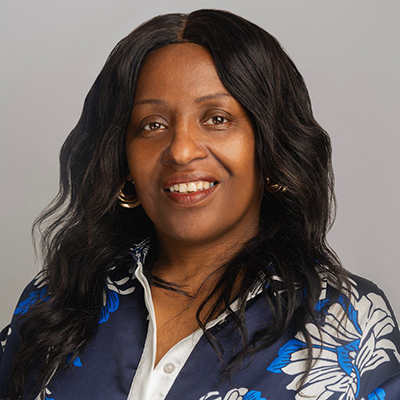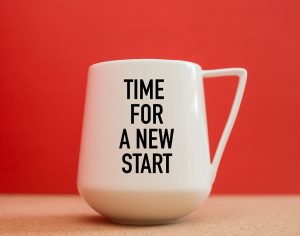This year’s Black Inclusion Week, which launched at the House of Commons in May, continues its plight to promote a society that is inclusive of the Black community. I had the privilege of participating in panel discussions and talks from major corporations like Tescos, HSBC, Lloyds and Auto Trader, about how strategies for diversity must permeate through every layer of an organisation – from recruitment to retention – so that interventions become sustainable and organic; a way of being.
My talk specifically focused on why there is a need to celebrate everyday, relatable Black talent through formal awards and recognition. Because, in an ever more politically divided climate gripped by culture wars, justification for why such accolades must exist remains a tedious and ongoing process.
Dare to read below the line and you’ll find that even in the more ‘respectable’ broadsheets, such as the Daily Telegraph – official media partner of the annual and hugely successful Black Business Awards and whose audience is presumably more educated than your average tabloid reader – there are trolls aplenty.
A similar crowd that decries the existence of International Women’s Day as sexist are braying that Black business awards “are racist and exclusionary. What if there was a White Business Awards? Everyone will be up in arms!”
The reasons why such awards exist shouldbe patently obvious but, in my experience, those who do require an explanation aren’t particularly interested in a healthy debate. Rather, their obtuse and sceptical stance speaks volumes of a likely privileged life unrestrained by the disadvantage of colour and race. Pragmatically and rationally, they argue that talent, irrespective of colour, should be celebrated.
Of that, we can all agree. Unfortunately, we don’t live in a rational world.
The murder of George Floyd in 2020 was widely considered a seminal moment for diversity, equity and inclusion. It prompted many organisations, brands and businesses to instantly re-evaluate what, exactly, is stopping them from being truly inclusive. For a moment, it felt like the eyes and ears of the world were finally seeing and listening to the overlooked and silenced. A critical first step had been made on the road to rehabilitation; an acceptance that – by virtue of one’s skin colour – some are just more equal than others. With this powerful admission in tow came hope that positive change could finally be realised.
But what has changed since then?
Not much. Bloomberg reported that business schools still lag in diversity despite stated goals. McKinsey reported that racial parity is still 320 years away. If ever there was a case for the myriad movements mobilised to rally against the homogenous rule, it’s this.
Awards of the kind I’m talking about are not about winning the gong, as such. It’s really a platform for storytelling. And storytelling is a potent force for change. A great idea is nothing without the narrative that inspires and brings it to life. So the awards that champion Black talent remain remarkable because these real-life, human-centred stories often speak of overcoming struggles that beset the journey to success right, from the onset.
Poverty, abuse and discrimination often, but not always, feature. It spotlights the engrained, systemic disparities that keep the disadvantaged from staying caught up in an ecosystem of self-fulfilling hardship. Some override the system and succeed despite the setbacks of colour but nowhere near enough Black people manage to do this. There are so many factors at play but, if you look at the wider reports and statistics for the career prognosis of a Black individual, it isn’t good.
Black children are more likely to fail at school. Black children are twice as likely to be in poverty. Black youths are 4.7 times more likely to be detained in juvenile facilities. Black professionals are more likely to leave elite corporations before their white peers due to the so-called ‘Black Ceiling’.
Taking a holistic view of the problem of Black exclusion, it’s easy to see that achieving racial parity in society is above and beyond the ability of a few influential corporations or organisations. Tackling Black exclusion effectively means addressing poverty, democratising resources, providing effective social support for families and accessing a cohesive community of relatable role models and mentors that can guide and inspire the Black and the aspiring that another outcome, different from the usual peddled narrative, is possible.
As avid consumers of content, we are too used to assimilating the negative narratives of the Black experience that nothing surprises us anymore. We come to expect Black people to fail. And once that expectation is set, diversity and inclusion interventions can feel performative and impotent – an ESG tick box.
And what of the Black people who digest these negative narratives? It can be hard to believe in one’s abilities when the world expects you to fail. Why bother? Thus underachievement becomes a self-fulfilling prophecy.
It takes a huge amount of grit and hustle for Black individuals to achieve when the social and economic odds are typically stacked against them. That is why Black success stories stand out; they are the exception to the rule. Black success needs to get to the point where it becomes normalised. That is when talent – irrespective of colour – can be appreciated and celebrated for its own sake. Until we reach that tipping point, awards and recognition specifically for Black achievement have an important part to play in an overdue paradigm shift of racial equality.
The toxic diet of negative Black narratives must be neutralised with the positive ones to instil hope when self-belief runs thin. Awards provide a vital platform for storytelling that can effect positive social change, from the inside out and from the outside in. It can motivate, galvanise and inspire everyone in the human community to cooperate and campaign for a fairer life for all. It’s not just a gong. It’s far from divisive. In the greater scheme of things, it aims to unite.
Share via:









































